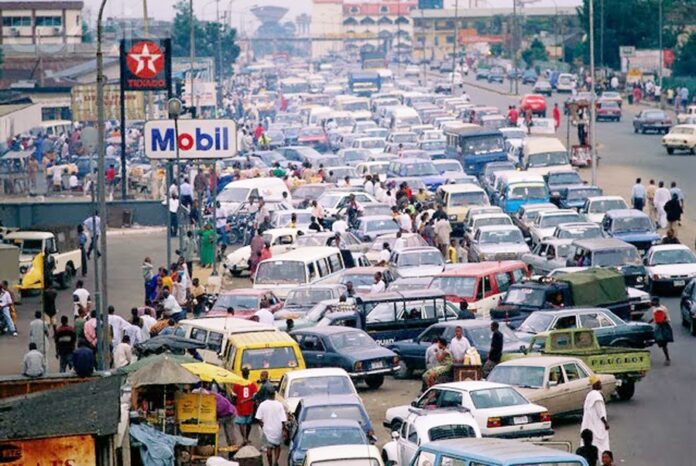NNPC blames road repairs but says efforts on to restore normal supply
By Jeph Ajobaju, Chief Copy Editor
Abuja has seen long fuel queues for much of the year and, after a break of six months, commercial hub Lagos returned to the fuel scarcity hardship last week, prompting more than double fare hikes since Monday, colluding with inflation to erode income.
Fares have risen, triggered by hikes in petrol pump price from N175 per litre to between N250 and N400 per litre. The prices of goods and services also increase as the collateral effect of high fares.
The Nigerian National Petroleum Company (NNPC) says the latest transportation trauma of already weary citizens is not caused by shortage of petrol but by road repairs in Apapa from where much of the import is conveyed around the country.
NNPC Executive Vice President (Downstream) Adeyemi Adetunju explained in Abuja on Tuesday the chaos will ease as remediation efforts come into full effect.
“The recent queues in Lagos are largely due to ongoing road infrastructure projects around Apapa and access road challenges in some parts of Lagos depots.
“The gridlock is easing out and NNPC has programmed vessels and trucks to unconstrained depots and massive load outs from depots to various states are closely being monitored,” he said.
_______________________________________________________________
Related articles:
Fuel subsidy costs N4b – more than budgets for health, education, defence
NNPC figures are unbelievable, fuel subsidy makes me sorry for Nigeria’s next president — Sanusi
Customs intercepts 358 bags of rice concealed in fuel tanker
_________________________________________________________________
Loading constraints in Lagos impact Abuja
“Abuja is impacted by the challenges recorded in Lagos. NNPC retail and key marketers have intensified dedicated loading into Abuja to restore normalcy as soon as possible,” Adetunju added, per Nairametrics.
“We want to reassure all Nigerians that NNPC has sufficient products, and we significantly increased product loading, including 24-hour operations in selected depots and extended hours at strategic stations to ensure products sufficiency nationwide.’’
“We are also working with the NMDPRA, MOMAN, DAPPMAN, IPMAN, NARTO, PTD, and other industry stakeholders to ensure normalcy is returned.”
Adetunju gave an assurance the NNPC has a “national petrol stock of over 2 billion litres. This is equivalent to over 30 days of sufficiency.”
The Major Oil Marketers Association of Nigeria (MOMAN) said it is working with the NNPC to improve the distribution of petrol across the country.
It pledged its members would work late to bridge supply gaps and push out more products than they normally do.













